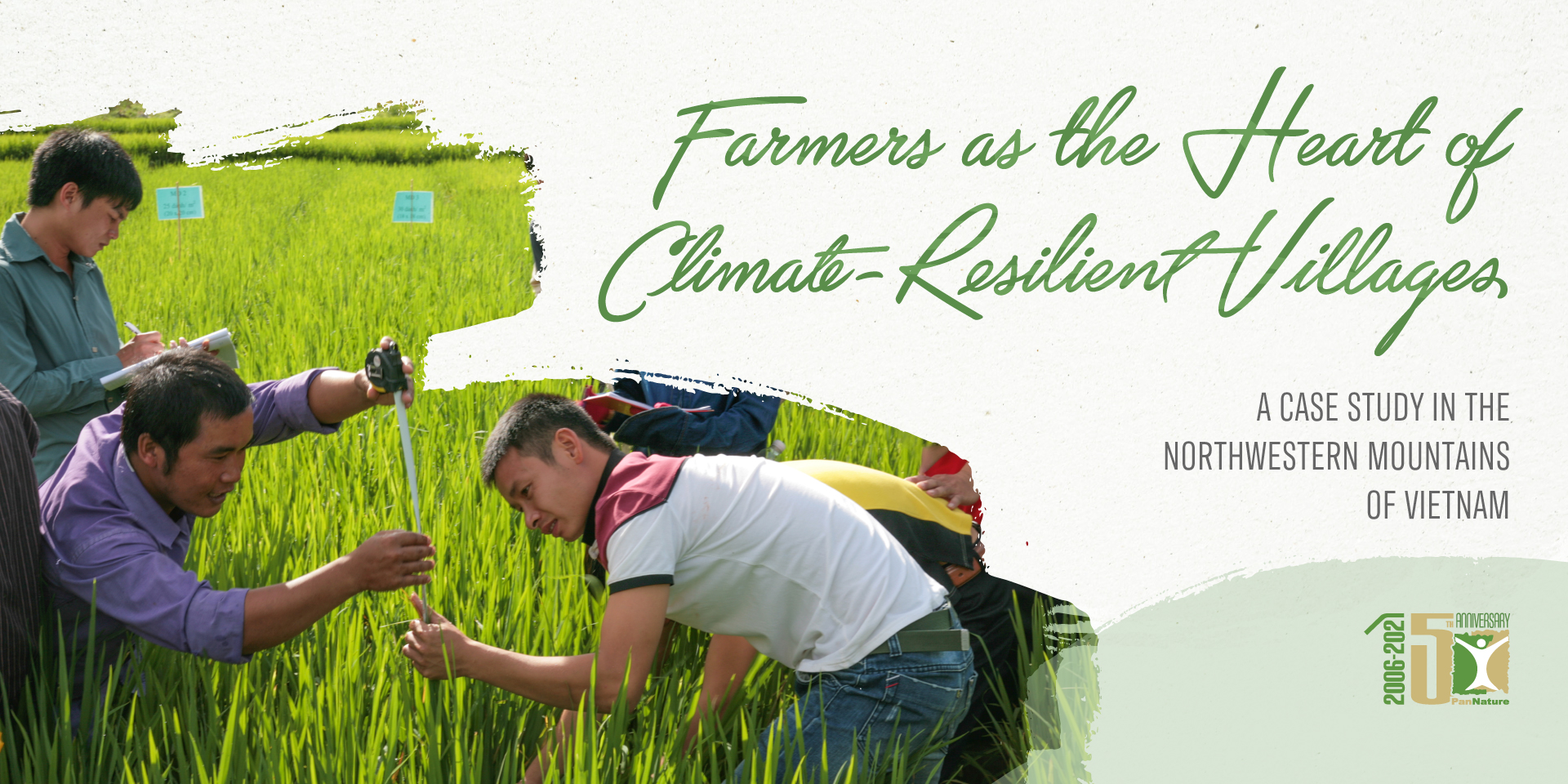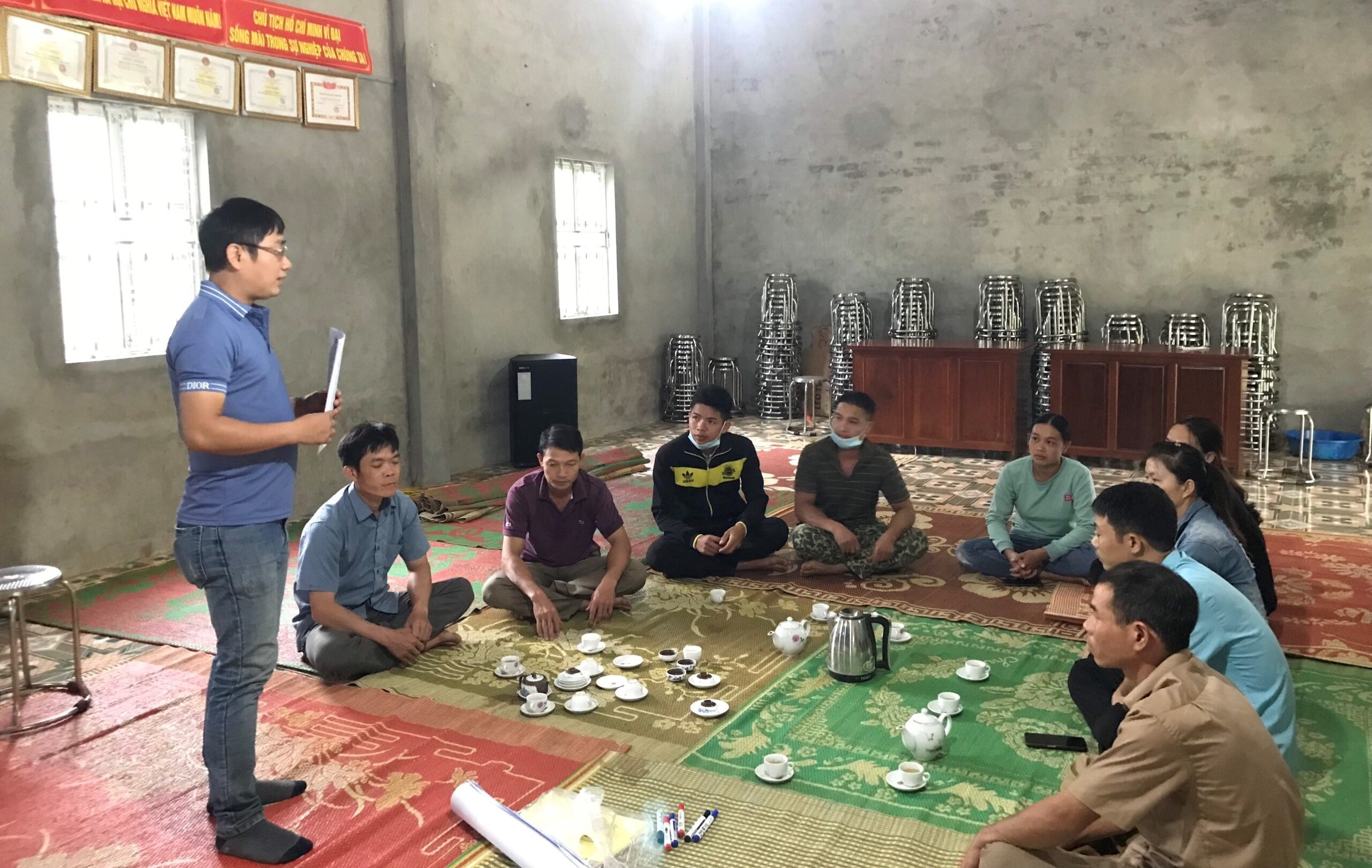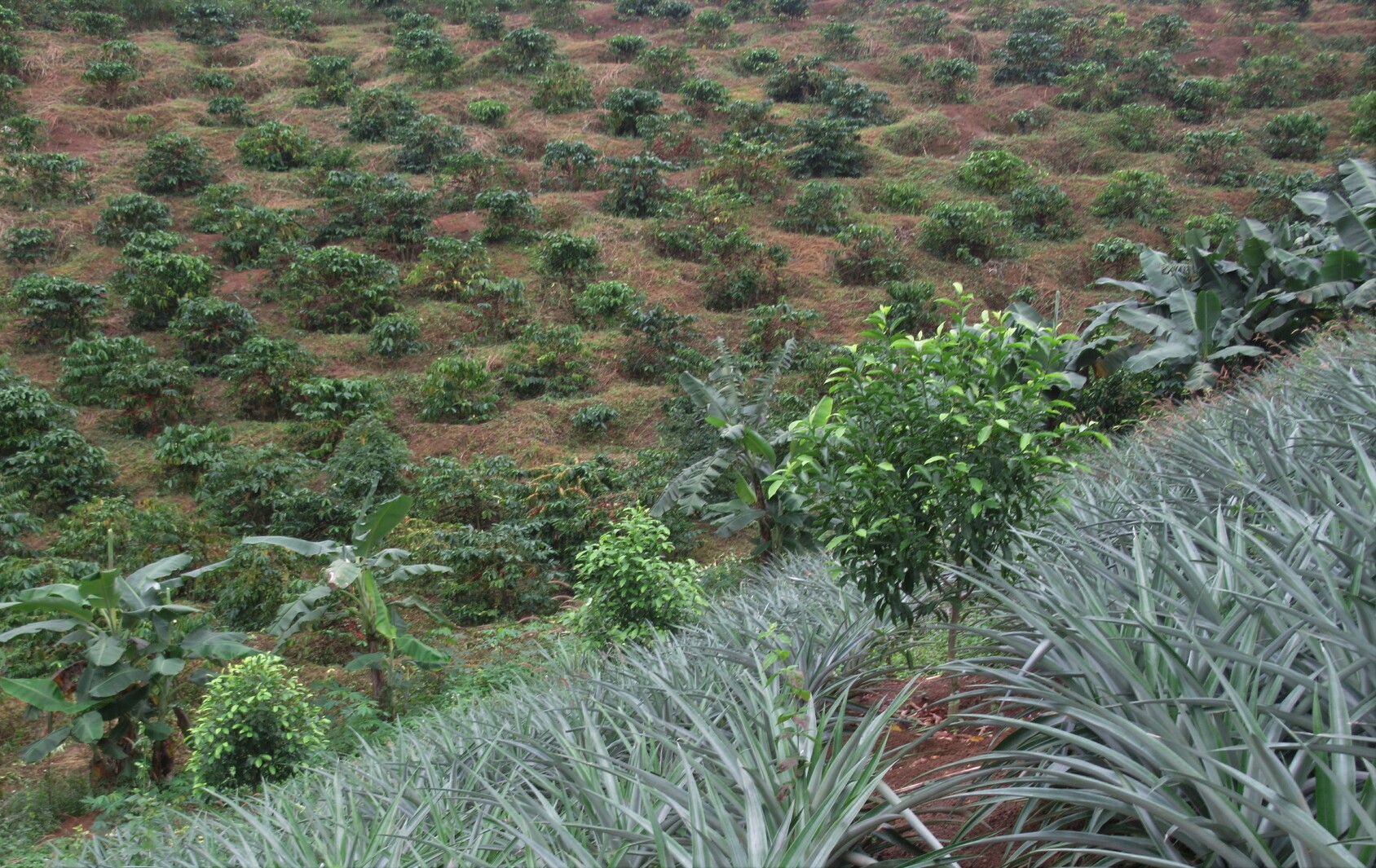People and Nature Reconciliation (PanNature) is proud to announce the…

Farmers as the Heart of Climate-Resilient Villages
Farmers need to be the central part of agricultural initiatives to bring real transformation.
On August 19, 2021, PanNature published the paper “Farmers as the Heart of Climate-Resilient Villages: A Case Study in the Northwestern Mountains of Vietnam“. Based on the Voice of Farmers (VOF) Project’s experiences in strengthening the voice and capacity of vulnerable ethnic minority farmers in climate resilience in Northwest Vietnam, this document provides an overview of project models in Son La and Lai Chau provinces, and propose a comprehensive approach for agricultural solutions to cope up with climate change in Vietnam.
Since 2019, PanNature and partners have been developing the Climate-Resilient Agricultural Villages (CRAV) in 6 areas of Lai Chau and Son La province. Unlike other projects only focusing on improving technical aspects of farming and husbandry, these models promote farmers’ agricultural production in their harmonious relationships with natural conditions, production materials, policies and the market.
“Climate change is creating more and more challenges for agricultural production of Vietnam in general and the Northwestern region in particular,” said Mr. Trinh Le Nguyen, PanNature’s Executive Director. “According to our survey in 7 Northwestern communes in 2017, problems with climate change vary in each area. Therefore, we can’t expect an all-in-one policy. Instead, each locality needs to take into account the response to climate change in their agricultural development planning. However, only around 6% of interviewed farmers said they contributed to those communal plans. All of us should think about that, as farmers are directly affected by climate change and simultaneously take response actions in the field.”
The Project forms and develops a Farmer Resilient Group (FRG) at the heart of each CRAV. With 10 members directly elected by villagers, the FRG becomes a representative for villagers’ voices in dialogues with local authorities on agricultural production to adapt to and reduce climate change impacts. Applying necessary skills equipped from different training courses, FRGs play the pioneering role in building local sustainable agriculture.
In each targeted village, the FRG works together to decide agricultural models that fit the specific natural conditions or market status of each locality. They also learn from practical training classes about climate-smart and environment-friendly agriculture on their own land. On top of that, the VOF project promotes the FRGs to participate in the production planning process, the local socio-economic development plans, conduct market search and connect villagers with enterprises in the supply chain. Therefore, the CRAVs head to achieve three main objectives: ensuring productivity and income for farmers, helping agricultural production adapt to the impacts of climate change, and minimizing greenhouse gas emissions.
The CRAVs do not choose the top-down approach that requires farmers to raise specific plants or animals. Instead, it starts from the economic, social, environmental and political contexts of each area and considers the will of the local farmers to develop appropriate crops and livestock. For climate-poorly-adaptive crops and livestock like maize in Na Khai village (Yen Chau, Son La), cassava in Thin village (Van Ho, Son La) or rice in Na Ca village (Tam Duong, Lai Chau), members of FRGs directly discuss to select more adaptive types. As to already suitable types but agricultural methods for them have negative impacts on the environment (keeping cattle under the floor without composting cow waste in Phe A village (Thuan Chau, Son La), traditional rice cultivation in Hop 1 village (Phong Tho, Lai Chau) or Hat Lot village (Mai Son, Son La)), farmers and the VOF project work together to shift to more friendly and sustainable techniques. In addition, all these processes must simultaneously take into account the criteria of local agricultural development and market accessibility of products.
“Climate change adaptation will be our single biggest problem for the next 50 years,” said Mr. Soren Thorndal Jorgensen, Chairman of ADDA Denmark cum Country Manager of ADDA Vietnam. “We have to react now both with training on new farming practices, but also try to reduce our emissions of climate gasses. Agriculture in Vietnam can do both, but no solution fits every single diverse location.”
“Just like “tailoring” from the grassroots level to create each CRAV suitable for each locality, we need to consider and integrate local political, economic, social and environmental conditions into account to support local communities to adapt with emerging environmental changes,” said Mr. Nguyen Duc To Luu, VOF Project Coordinator. “Despite being difficult, it is also worth it. Because when a solution is found, it will fit harmoniously in the overall picture of the locality.”
To enhance the representative role of the FRGs, PanNature and partners have been working with and enlisting the support of local officials. Through workshops, dialogues and agreements signed, the FRGs and the Communal People’s Committees have chances to regularly discuss the decision-making process in agriculture, especially with the incorporation of specific climate response measures.
Besides, by using the “farmers teaching farmers” method, the FRGs will become proactive and enduring kernels to motivate the surrounding communities to learn and apply sustainable agricultural practices. It is expected that the results of the CRAVs will be naturally maintained by the communities and local authorities even after the VOF Project ends, which would not be achieved only by applying agricultural techniques.



